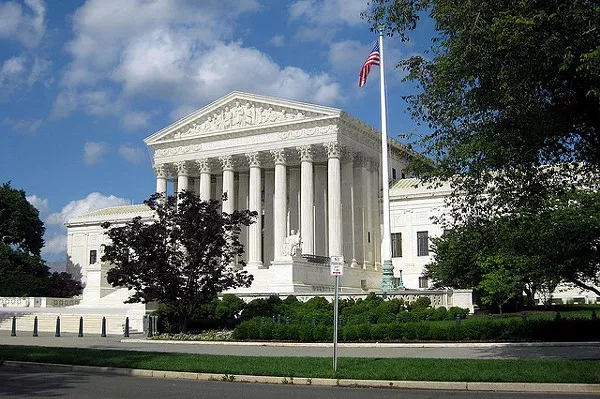Are you losing sleep worrying about invasions from outer space, blood-sucking zombies or genetically mutated organisms? You've been nicely distracted from the real threat: Flesh-and-blood human beings supplanted by corporations, which, according to the highest court in the land, have not only the right to spend as much money as they like buying politicians via campaign donations, but now also have the right to ignore other laws they believe infringe on their newly recognized rights to religious freedom.
In a landmark ruling known as the Hobby Lobby case, the U.S. Supreme Court ended the 2013-14 docket with a 5-4 decision, written by the conservative Justice Samuel Alito, in which the court said that privately held companies - those not traded via the markets, wholly owned by a family or by individuals - can refuse to pay for contraceptive prescriptions under the Affordable Care Act because such prescriptions are tantamount to abortions, which some company owners believe amount to murder through their evangelical Christian beliefs. The family that owns Hobby Lobby argued through its lawyers that Obamacare forced them to violate their religious beliefs in offering that option to its employees, while others said that corporations had no right to impose their religious beliefs on those who work for them. The five justices in the majority were all appointed by Republicans. They are also all men.

- Wally Gobetz (Flickr Creative Commons)
One of the leading arguments against Hobby Lobby was that if its assertion were followed to its logical conclusions, a company owned by pacifists could refuse to pay taxes that might go, in some part, to pay for bombs. Another argument is that this opens a huge can of worms in questioning whether or not owners of a company can refuse to employ, for example, homosexuals - or even people of different faiths. Where, exactly, critics ask, is the dividing line in this action?
Early analysis by those in favor of the ruling describe Alito's decision as limited, in that it only applied to privately held companies. But NARAL Pro-Choice America President Ilyse Hogue told CNN that she was outraged that the decision was made by five men on the court, who she said were discriminating against women, echoing a sentiment from Justice Ruth Bader Ginsburg, who decried the action's scope and precedent.
To see how else our lives have been affected by arguably the most powerful nine men and women in the country, let's take a look at a few of the other cases decided by the Supreme Court in the past few weeks.
The Court decided, unanimously, that the president can't get around the Senate approval process by naming people he chooses to various positions, something that will have the most impact when the Senate and White House are controlled by opposing parties, as could happen after this November's elections. In another unanimous decision, the court eliminated a 35-foot buffer zone between protesters and patients entering abortion clinics, meaning protesters could come much closer to women in attempts to dissuade them from going through the process. And in still another unanimous decision, the Supreme Court gave us all a little more privacy, making our smartphones off-limits to police searches without a warrant. Finally, the Court clipped the wings of one startup company that was trying to offer a way around the current high cost of streaming television programming, ruling that the established networks can still control access, and, essentially, charge us what they like.
Now we wait for the first Monday in October, when the next round of cases will be heard, to see how our lives will change yet again. Time to pull the covers over your heads.
